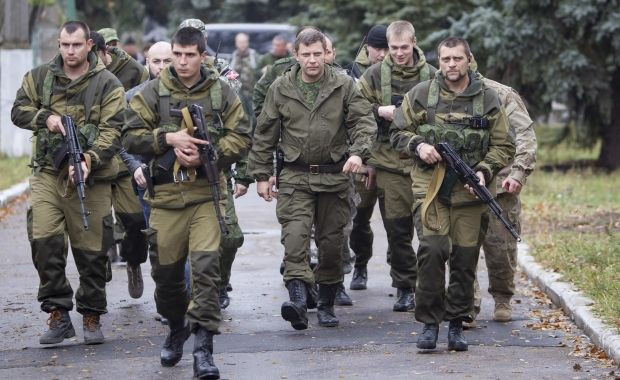Pro-Russian Rebel Leader Threatens To Take Mariupol, Blames Ukrainians For Truce Breakdown

The leader of the self-proclaimed Donetsk People’s Republic threatened Thursday that pro-Russian rebels will take the port city of Mariupol if Ukrainian forces continue their "aggression" toward them. Oleksandr Zakharchenko’s comments, made on Russian TV, come as intense fighting in Donetsk, as well as Mariupol, threatens to reignite the war in eastern Ukraine and scuttle the already fragile Minsk II agreement.
"We will free our compatriots,” Zakharchenko said of Russians living in Mariupol. “About 23,000 soldiers are under my command, while another 30,000 people are on standby. It is very easy to take the flank of Mariupol. Do not forget that our mothers and sisters live there."
"We believed and will believe that we are part of the Soviet Union, part of Russia," added Zakharchenko.
Zakharchenko has said, however, that the Minsk II agreement will be honored provided Ukrainian forces stop attacking his rebels.
The Minsk II agreement, which was signed on Feb. 12 and came into force on Feb. 15, is particularly fragile right now. On Sunday, the Organization for Security and Co-operation in Europe, the group charged with overseeing the agreement, reported more than 1,100 explosions in and around Donetsk, plus hundreds of instances of shelling by both sides in Mariupol. In addition, the OSCE says it has been denied access to conflict areas in recent weeks.
The foreign ministers of the Normandy Four, a group consisting of Germany, Russia, Ukraine and France, met Monday to discuss the state of the Minsk agreement and general security issues in eastern Ukraine. While backing the existing terms of the pact, ministers all agreed to put into place four working groups that will examine the political process, humanitarian issues, economic affairs and rehabilitation of the region. Those groups are expected to be assembled in the coming week.
“All this will help to improve the humanitarian situation in the east of the country and to restore its infrastructure,” German Foreign Minister Frank-Walter Steinmeier said Tuesday. The meeting “confirmed how difficult the situation is. The way will be long, but if we do not follow it, the situation may get out of our control."
© Copyright IBTimes 2024. All rights reserved.





















